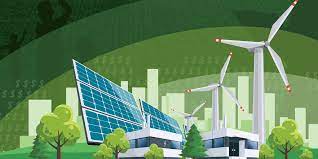The Director General of the National Information Technology Development Agency (NITDA), Kashifu Inuwa, has reaffirmed the agency’s unwavering focus on advancing Nigeria’s digital economy through crucial green technology and innovation initiatives.
Inuwa delivered this commitment while speaking at the 3rd Technology Ecosystem Dialogue (TED 2025), an event expertly organized by the Young Innovators of Nigeria (YIN). The dialogue’s timely theme was: “Green Tech and Energy Revolution: Transforming Business and Society.”
Commending YIN for hosting a “timely and visionary dialogue,” the DG praised the group’s consistent efforts in promoting innovation and nurturing young talent, stating, “TED 2025 once again proves that Nigeria’s youth are not just the leaders of tomorrow, but the change-makers of today.”
He noted that the event’s theme aligns with President Bola Ahmed Tinubu’s Renewed Hope Agenda, particularly its focus on economic diversification through industrialization, digitization, and innovation.
Highlighting NITDA’s interventions to strengthen the technology ecosystem, Inuwa listed several initiatives, including the establishment of Technology and Innovation Hubs across the country, as well as programs like iHatch, the National Innovation Challenge, IgniteHer, We Elevate, and Renewed Hope Innovation Nest. He stressed that these initiatives and partnerships—which focus on research in frontier technologies like AI, IoT, and clean energy—are designed to ensure that innovation is inclusive, reaching youth, women, and MSMEs across Nigeria.
Inuwa emphasized that embracing green technology is not optional but a necessity, assuring stakeholders that NITDA is fully committed to partnerships that will enable Nigeria to lead Africa in leveraging green technology for growth, jobs, and sustainable development.
Delivering the keynote address, Dr. Krakrafaa Bestman, a Sustainability Expert, highlighted that despite millions of Nigerians lacking reliable electricity, the nation is richly blessed with solar, wind, hydro, and human capital resources. He stressed that these endowments present vast opportunities to bridge the energy gap and stimulate sustainable development.
Dr. Bestman outlined Nigeria’s energy transition targets, pointing to plans to generate 30 percent of electricity from renewable sources by 2030 and deploy 5GW of solar capacity. He also underscored the importance of adopting circular economy practices, such as recycling and waste-to-energy solutions, to reduce pollution and create new economic opportunities.
For the transition to succeed, Dr. Bestman outlined three priorities:
- Reforms to attract investment and incentivize renewable energy adoption.
- Greater business commitment to clean energy sourcing and community partnerships.
- Innovations that deliver safe, affordable, and locally adaptable technologies.
He urged Nigerians to embrace innovation and collaboration, concluding, “The world is waiting for Nigeria’s leadership in building a resilient and sustainable energy system.”


